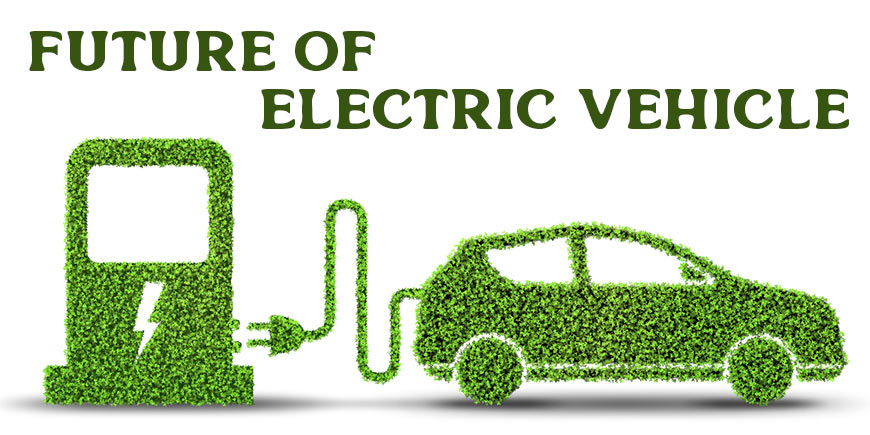
It is the future of electric vehicles. The automobile industry continues to grow at a rapid pace.
And in coming years, consumer demand will emerge all the more, as seen by recent
technological and industrial advancements. For example, Tesla, the world's most valued electric
vehicle company, is all set with its vehicles in India.
Even though the EV sector had hoped for a budget that would be as revolutionary, but
practically it fell short on several fronts. This has elicited conflicting reactions from the sector.
The government recently declared an increase in customs duties on some automotive
components, which might affect the e-mobility industry. The government, on the other hand, has
proposed launching a voluntary automobile scrappage program this year in the hopes of
encouraging people to buy more ecologically friendly automobiles. Its goal is to phase out all
commercial vehicles that are more than 15-20 years old. These announcements fell far short of
the EV industry's three primary assumptions, notably: Reducing the GST and import tariff,
Developing EV financing solutions, and increasing awareness.
The introduction of the tech giant is likely to increase the nation's EV adoption. This debut also demonstrates that there is still a lot to be gained from wide adoption of EV's. In addition, the Make in India program can help with the production of electric vehicles and their components. According to some estimates, this might boost the country's GDP by approximately 25% in the next years.
Different cities like Jaipur, Delhi and Kolkata have also witnessed the introduction and wide use of e-rikshaws. These cities encouraged the adoption of e-rickshaws in order to reduce operating and financial costs. Above one lakh e-rickshaws are said to be on the roads of Delhi, with Jaipur and Kolkata getting on board. This trend is also supporting an increase in EV sales for personal use. The lately announced ‘Switch Delhi' campaign has gotten a lot of attention, which is good news for the EV business. The promotion was launched to encourage people to buy electric vehicles. As a result of its popularity, some of the country's biggest two-wheeler manufacturers have announced that new EV variants will be introduced in the country's capital.
Delhi Transport Minister revealed that since the campaign began, the number of electric two- wheeler registrations has grown. The campaign is an eight-week public education campaign promoting the advantages of shifting to electric vehicles. The Switch Delhi campaign also attempts to increase awareness about electric three-wheelers and encourage people to choose them.
Talking about the transportation system in India, trucks controlled India's transportation network for a very long period. This has been the sole way to get huge and small items to numerous places, later followed by bicycles, vans, and other smaller forms of transportation, which completely transformed the distribution system. These advancements, together with rising demand, have propelled the sector to new heights. However, there is a trade-off: a larger carbon footprint. It has an adverse impact on the ecological system and public'soverall wellbeing. Furthermore, air pollution is visible in heavily populated cities like Delhi, Bangalore, and Mumbai.
In a massive push for the industry, Nitin Gadkari, the union minister for road, transport, and highways, stated in November 2020 that the ministry would install minimum one electric vehicle charging booth and stations at each of the country's 69,000 gas stations and petrol pumps.
More state governments are introducing incentives to encourage people to switch to electric vehicles. Although the government's goals for electric vehicles are obvious, and worlds’ leading companies continue investing in this potential and upcoming industry, there are still obstacles to overcome in order to increase sales of electric vehicles.
With the advent of e-commerce, particularly food retailing delivery services, there are several delivery corporations that run entirely on electric vehicles. They have taken it on themselves to make a difference and work towards making India pollution-free. As the requirement for delivery services grows, so does the need for more run-time. As electric vehicles (EVs) take over the supply network, they must sustain their pace. The battery charging operation for an electric vehicle can take up to two hours, which might be inconvenient if distribution staff is continually waiting for a charge to finish. As a result, several delivery companies have put up battery changing facilities to speed up the process. Delivery employees can replace an exhausted battery with a fully charged battery in a couple of minutes using these battery changing systems. As word of their efficiency spreads, these battery changing stations are gaining popularity. It's a method that automakers are using to offer their consumers with a quick and simple way to charge their electric vehicles. Overall, considering the EV industry's expanding recognition, cost- effective options, and comfort, it is safe to conclude that the prospect of EVs in India is absolutely electrifying.

Author – Prof. Lavina khilnani
MBA
A highly dedicated and result-oriented professional with excellent communication skills. Proficient in using an enthusiastic and dynamic teaching technique as a means of creating better learners.

